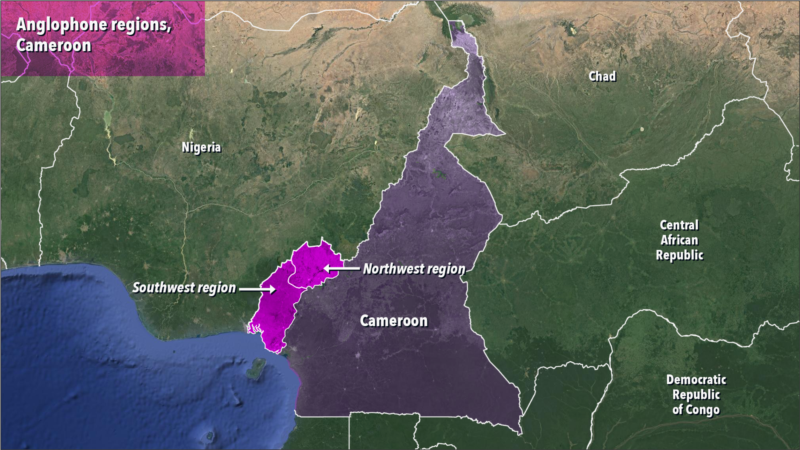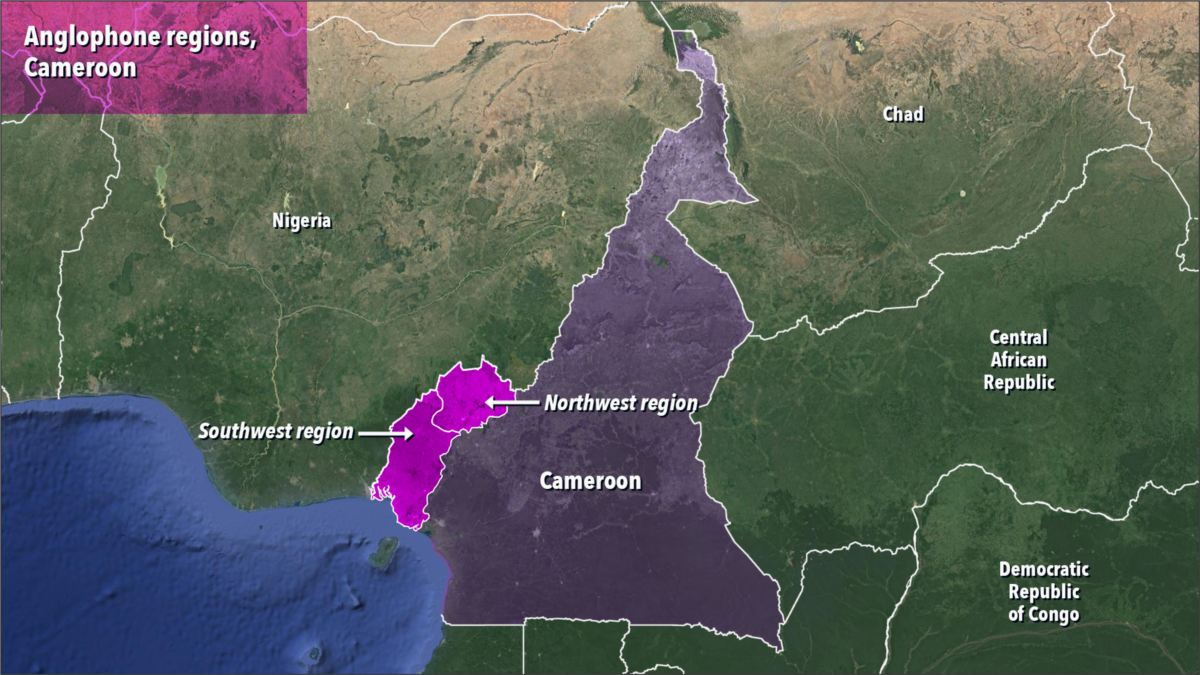This website uses cookies so that we can provide you with the best user experience possible. Cookie information is stored in your browser and performs functions such as recognising you when you return to our website and helping our team to understand which sections of the website you find most interesting and useful.


Cameroonian authorities said Friday that separatists had attacked a village on the Nigerian border earlier in the week, with local officials saying they torched at least 12 homes and killed six people. Authorities say the rebels appeared to be targeting members of the Mbororo ethnic group, who the separatists accuse of collaborating with government troops.
The Cameroonian military said separatists shot indiscriminately in the air and torched houses in Mbonhong, a western village in Ndu district on the border with Nigeria. The military did not say how many houses were burned nor how many people were killed or wounded.
Separatists have shared videos of the attack on Mbonhong village on social media including WhatsApp and Facebook.
About 15 separatists in the videos say that they are avenging abuses committed against them by Cameroon’s military and charge the government forces are using homes, farms and cattle ranches of ethnic Mbororo and Fulani as military bases. The fighters are seen torching about eight houses.
Capo Daniel, deputy defense chief of the Ambazonia Defense Forces, a separatist group, says fighters in Ndu district, where Mbonhong village is located, organized the attack.
"The operation [attack] that took place in Ndu, targeted the house of Mbororo who has been using his compound as a point where Cameroon military plan attacks," Danielo said. "As the Cameroon military has been unsuccessful in reaching our camps that are located in remote areas, they have increasingly turned to Mbororo people who are working hand in hand with the Cameroon military."
Daniel said the Ambazonia Defense Forces consider Mbororo people who collaborate with Cameroon government troops fighting separatists to be traitors and people who support separatist fighters as friends.
Nkwenti Simon Dooh, the highest-ranking government official in Donga Mantung, the division where Ndu is located, told Cameroon state broadcaster CRTV that a week hardly goes by without separatists attacking Mbororo.
"Armed groups benefit from the fact that the Mbororo populations are scattered over the hills to cause so many atrocities," he said. "They [separatists] carried away many herds of their [Mbororo] cattle, looted, killed and burnt most of their structures."
Dooh said that besides deploying the military to protect Mbororo, the government asked the ethnic group to create militias to collaborate with government troops in protecting goods and people.
Cameroon's National Institute of Statistics estimates that there are over a million Mbororo in the central African country. More than 70% of the Mbororo are cattle ranchers owning about 70% of the estimated 3 million cattle in the English-speaking regions.
Mohammed Umaru Abubakar, a Mbororo rights activist and member of the Human Rights Committee of the Mbororo Cultural and Development Association,
said Mbororo are victims of brutality because the ethnic group has refused to support separatists fighting to carve out an independent English-speaking state in the majority French-speaking Cameroon.
Abubakar said the Mbororo are one of the ethnic groups that has suffered most from separatist brutality within the past four years.
"Three thousand eight hundred forty-two cattle were killed or seized or killed by the separatists, and over 5,000 cows have left the Northwest to other [safer] regions, while others [cattle] left for Nigeria," Abubakar said. "Over 195 million [have] been taken away from Mbororo people in the name of ransom. As of date, the statistics we have is about 325 Mbororo people that [have been] murdered by the separatists."
Abubakar said Cameroon should compensate Mbororo who have lost their cattle and protect ethnic group members from separatist attacks, looting and killing.
Separatists say they do not specifically target Mbororo, but they target all individuals and groups who collaborate with the Cameroon military. The United Nations says the Cameroon separatist crisis that turned into an armed conflict in 2017 has killed at least 3,300 people, and internally displaced some 750,000..



 Africana55 Radio
Africana55 Radio 
